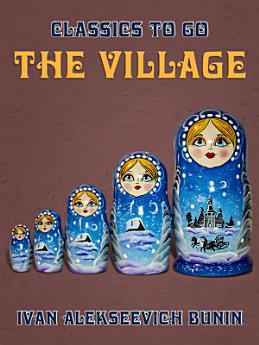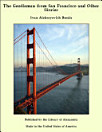The Village
Mar 2021 · Otbebookpublishing
Ebook
191
Pages
family_home
Eligible
info
reportRatings and reviews aren’t verified Learn More
About this ebook
The Village is a short novel by the Nobel Prize-winning Russian author Ivan Bunin, written in 1909 and first published in 1910. The Village caused much controversy at the time, though it was highly praised by Maxim Gorky (who from then on regarded the author as the major figure in Russian literature), among others, and is now generally regarded as Bunin's first masterpiece. Composed of brief episodes set in its author's birthplace at the time of the 1905 Revolution, it tells the story of two peasant brothers, one a brute drunk, the other a gentler, more sympathetic character. Bunin's realistic portrayal of the country life jarred with the idealised picture of "unspoiled" peasants which was common for the mainstream Russian literature, and featured the characters deemed 'offensive' by many, which were "so far below the average in terms of intelligence as to be scarcely human".
About the author
Ivan Alekseevich Bunin (1870-1953) stands as a towering figure in Russian literature, celebrated for his lyrical prose and masterful storytelling. Born into a noble family in Voronezh, Russia, Bunin's early exposure to the rural countryside profoundly influenced his writing, imbuing it with a deep appreciation for nature and a poignant sense of nostalgia.Bunin's literary career began in the late 19th century, and he quickly gained recognition for his poetic and prose works. His writing is characterized by its exquisite style, rich imagery, and exploration of complex human emotions. Bunin's works often delve into themes of love, loss, and the passage of time, capturing the essence of the human experience with unparalleled sensitivity.In 1933, Bunin became the first Russian writer to be awarded the Nobel Prize in Literature, a testament to his significant contributions to world literature. His influence extended beyond Russia, impacting contemporary writers and earning him a place among the literary greats of his time.Bunin's life was marked by significant historical events, including the Russian Revolution of 1917. A staunch critic of the Bolshevik regime, he chose to emigrate to France, where he continued to write and reflect on the profound changes occurring in his homeland. This period of exile added a layer of melancholy and introspection to his later works.Despite his conservative views, Bunin's revolutionary ideas about the power of literature to capture the human soul and his unwavering commitment to artistic integrity resonate with modern readers. His legacy endures as a testament to the enduring power of the written word to transcend time and place, offering a window into the universal human condition.
Rate this ebook
Tell us what you think.
Reading information
Smartphones and tablets
Install the Google Play Books app for Android and iPad/iPhone. It syncs automatically with your account and allows you to read online or offline wherever you are.
Laptops and computers
You can listen to audiobooks purchased on Google Play using your computer's web browser.
eReaders and other devices
To read on e-ink devices like Kobo eReaders, you'll need to download a file and transfer it to your device. Follow the detailed Help Center instructions to transfer the files to supported eReaders.






